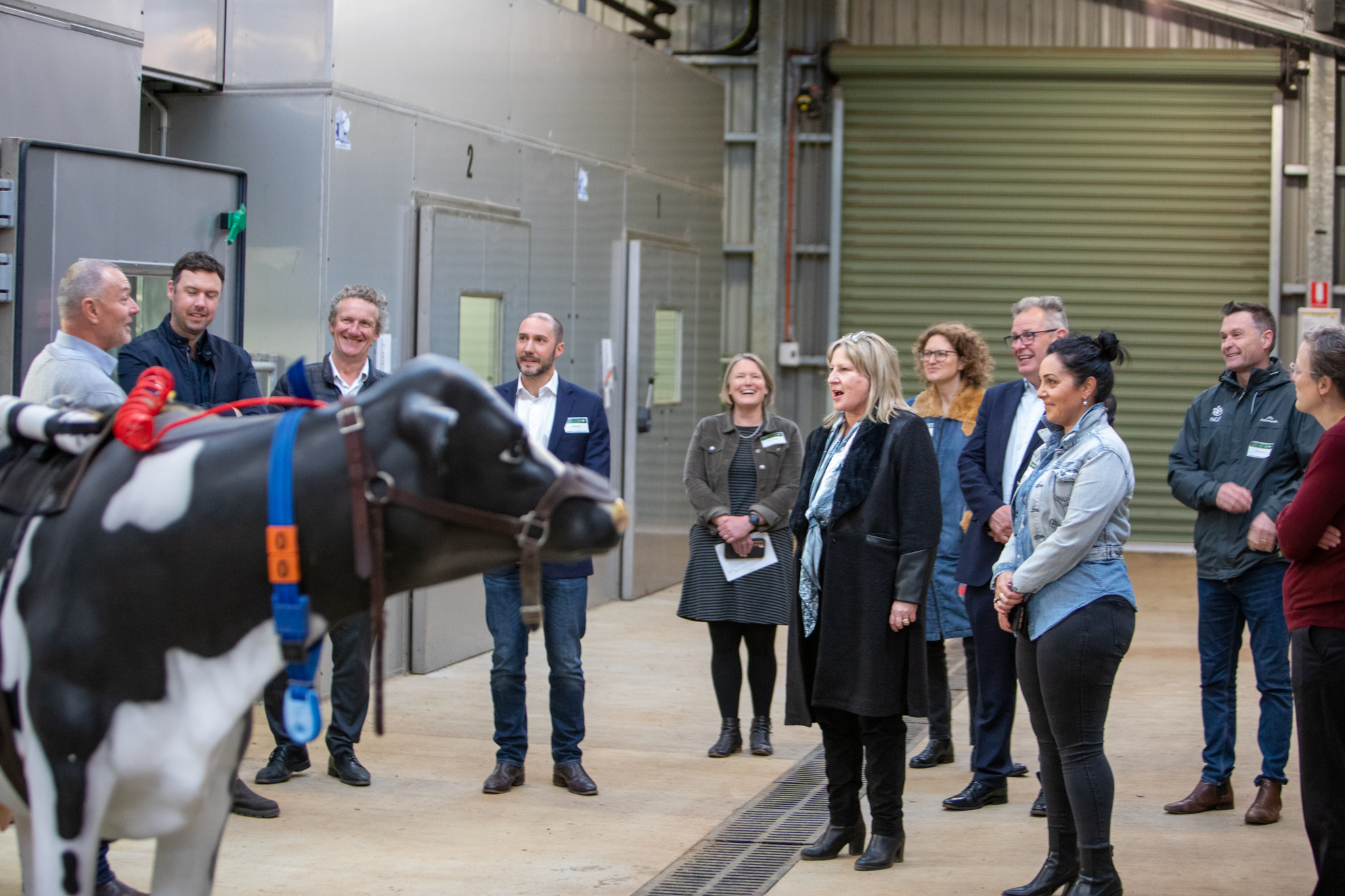VFF President Emma Germano joined Minister for Agriculture the Hon. Gayle Tierney MP and other industry leaders for the launch of Victoria’s Agriculture and Climate Change Statement at the Ellinbank SmartFarm on Wednesday 7 September 2022.
The statement (which has been endorsed by the VFF Policy Council) is a step towards recognising and celebrating the important role Victorian farmers play in responding to climate change. It has been developed by the Victorian Agriculture Climate Change Council and follows engagement with the VFF and over 45 stakeholder organisations across the agriculture sector.
The event coincided with the VFF Policy Council agreeing to a clear advocacy strategy focussed on protecting Victorian farmers from adverse outcomes caused by global responses to climate change, and educating government and community on:
- Differences between global averages and Australian systems.
- The actions that are actually being undertaken by Australian agriculture (eg. research and development).
- The difference between substitution opportunities and management opportunities.
- Understanding the emissions intensity of farming systems.
Victorian farmers are world leaders in carbon abatement and a key part of the climate solution. Since 2005, Australian agriculture has reduced its direct emissions by 65%. We’ve done this by embracing new practices and technologies, such as rotational grazing, low-till cropping, and converting animal waste to renewable energy.
The VFF looks forward to partnering with the Victorian Government and across industry to help farmers respond to climate effects. Our collective mission must be to ensure Victorian farmers are acknowledged, valued and respected for the work they have already done, and continue to do, in reducing their on-farm emissions.
Victorian Agriculture and Climate Change Statement
We are committed to a profitable and productive agriculture sector that takes ambitious action on climate change.
We are working together to accelerate climate change solutions, including taking steps to:
- understand and reduce our emissions
- adapt to climate risks and
- capture future opportunities.
